QuestionOur bulldogs will be 10 weeks tomorrow. We recently sold one, "Princess" about 3 and half weeks ago to someone that has a 1 year old bulldog. Our puppies have had their first shots before we sold any of them. Well the new owner of "Princess" called us yesterday telling us that they took her to the vet. due to heavy vomiting. They discovered she had Parvo. How is this caused? When is it detectable? I want to basically know, if the dog was in their possession when this happened. How long does it take for the symptoms to show? And how do we know how long she's had it. The puppies we still have now, which is 6, are fine. We called the other 2 new owners, and they said that their puppies are fine as well.
AnswerHi Irish,
Here is an explanation of Parvo and puppies, hope this helps to figure out if it contacted it at new home or had it incubating at your house,?
The reason that a series of vaccinations is given is due to the way antibody protection wears off.
I give all my puppies there first vaccination at 4 weeks.Then at 6 weeks of age.
Usually around 6 weeks of age, only 10 to 25 % of the puppies have lost maternal atibody protection. Only these puppies are protected by the vaccination. In the other, the maternal immunity destroys the vaccine virus so the puppy does not develop immunity to it.
At 9 weeks of age, probably 50 to 75% of puppies have lost maternal protection to parvovirus. So this time, most puppies are protected by the vaccine but 25% or more still have enough maternal antibody to interfere with the vaccine.
Finally, at 12 weeks of age, most puppies can be protected by the new parvovirus vaccines.
Like many viruses, parvovirus has an incubation period, or a period of time that it builds up in the body prior to the time that clinical signs appear. For parvovirus, this time period is at least four days and may be as long as seven days.
In addition to this, the test for parvovirus depends on the presence of virus that is shed into the digestive tract and excreted. After infection it takes three to four days for the virus to be shed in the stool, so the test should not be positive in an unvaccinated puppy until three days after the time the puppy was infected.
The incubation period for parvovirus is between 4 and 14 days. This is the amount of time from the exposure to the virus until clinical signs are obvious. Phppies have detectable virus in the blood stream prior to four days and they shed the virus in their stool for up to two weeks after they seem to be fully recovered.
This virus is very hard to avoid and it is not really fair to blame anyone for the puppy's exposure to the virus. The virus can last several months in the envirmonment and puppies are easily infected. Vaccination is the best protection against this disease but it doesn't always work, because there is a brief period of time (about a week) during the puppy's life when the virus can overpower vaccination even when it has been properly administered.
/regards
Patt
WWW.VOMSCHREKNHAUS.COM

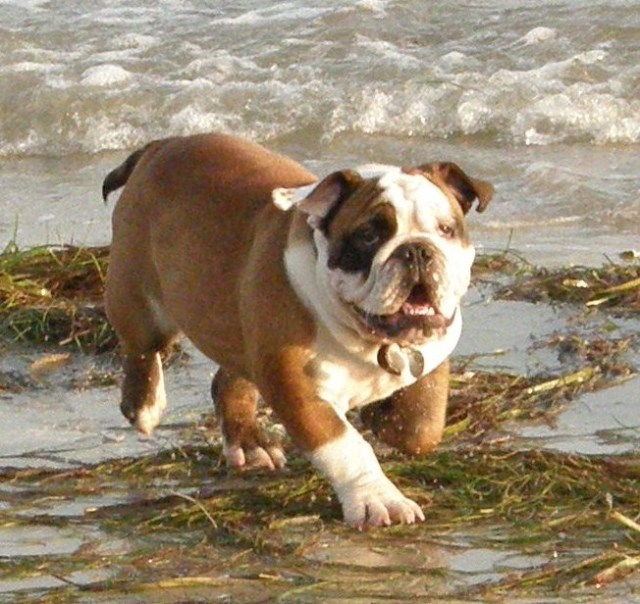 My English Bulldog, Rocco
Question
Rocco
Hello, I am a owner of a English Bulldog
My English Bulldog, Rocco
Question
Rocco
Hello, I am a owner of a English Bulldog
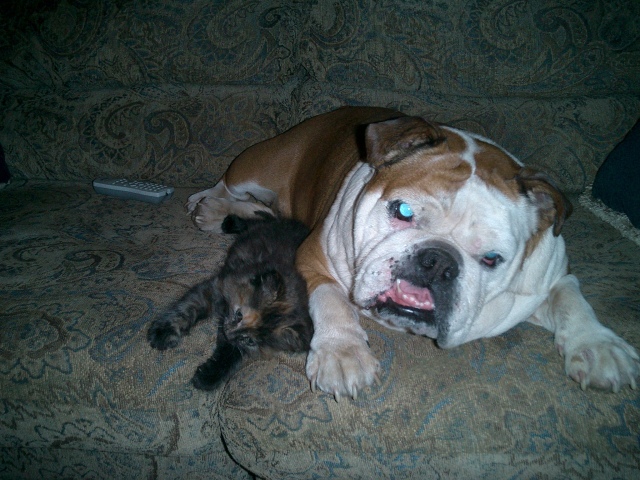 congest heart failure/stroke? in english bulldog ;
Question
Babe babysitting
I have a 12 yr old female Eng
congest heart failure/stroke? in english bulldog ;
Question
Babe babysitting
I have a 12 yr old female Eng
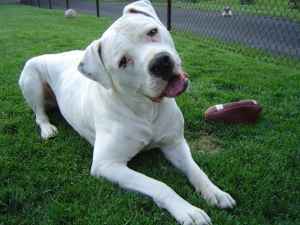 knee injury experience?
QuestionQUESTION: bulldog joints are a problem, I know.
knee injury experience?
QuestionQUESTION: bulldog joints are a problem, I know.
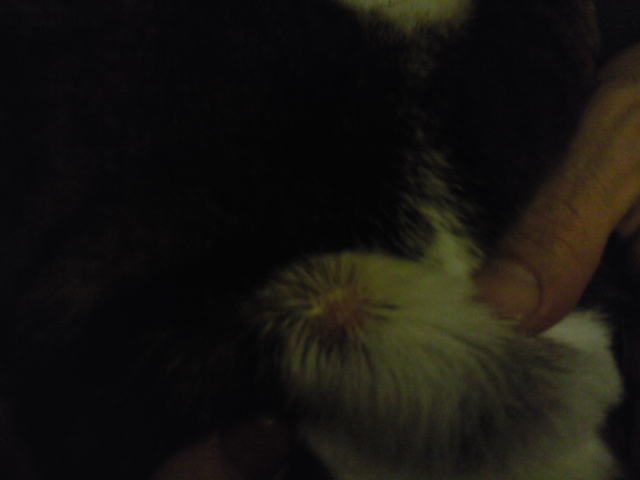 English Bulldog Lump possible herpes virus;
QuestionSlims Lump
QUESTION: My 6 year old Engli
English Bulldog Lump possible herpes virus;
QuestionSlims Lump
QUESTION: My 6 year old Engli
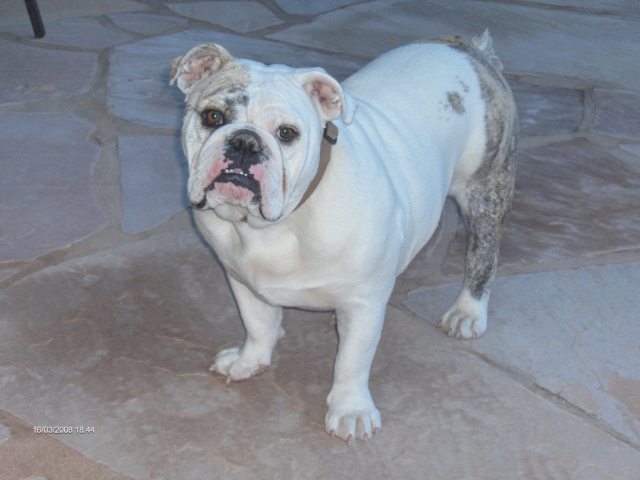 Biting/Nipping
Question Thank you so much for providing a site that we
Biting/Nipping
Question Thank you so much for providing a site that we